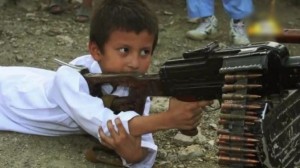Latest News
HRW reports surge in Taliban child soldier recruitment
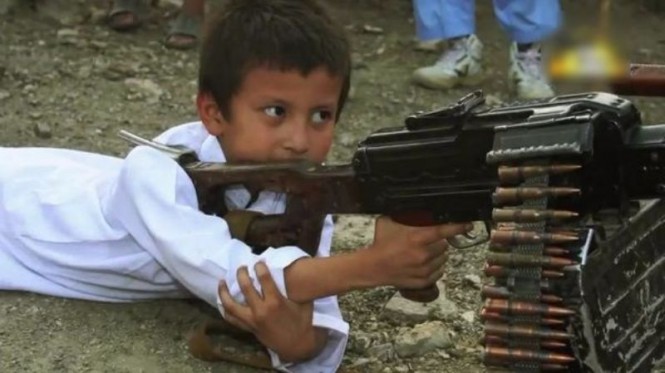
Taliban forces in Afghanistan have added scores of children to their ranks since mid-2015 in violation of the international prohibition on the use of child soldiers, Human Rights Watch (HRW) said.
New Human Rights Watch research shows that the Taliban have been training and deploying children for various military operations including the production and planting of improvised explosive devices (IED).
In Kunduz province, the Taliban have increasingly used madrasas, or Islamic religious schools, to provide military training to children between the ages of 13 and 17, many of whom have been deployed in combat.
Although the Taliban have recruited child soldiers since the 1990s, local residents and analysts said they believe an increase in child soldiers over the last 12 months was largely due to the insurgents’ major offensive in northern Afghanistan, which began in April 2015.
Under international humanitarian law, the deployment of people under the age of 15 is considered a war crime.
Human Rights Watch interviewed relatives of 13 children recruited as Taliban soldiers over the past year, and verified these claims through interviews with civil society activists, political analysts, and the United Nations.
Despite Taliban claims that they only enlist fighters who have achieved “mental and physical maturity,” and do not use “boys with no beards” in military operations, some of the children recruited from madrasas in Kunduz, Takhar, and Badakhshan provinces are 13 or younger.
The Taliban have previously denied“the use of children and adolescents in Jihadic Operations,” but its deployment of individuals under the age of 18 violates international law applicable in Afghanistan and in cases involving children under 15 is a war crime.
The report suggests that the government and military forces (US and NATO) ban madrasas and teaching of religious education by evoking ‘The Optional Protocol’ in the ‘Involvement of Children in Armed Conflict’ found in International Humanitarian Law.
The Taliban madrasas attract many poor families because the Taliban cover their expenses and provide food and clothing for the children.
In some cases they offer cash to families for sending their boys to the madrasas. An expert on Kunduz told Human Rights Watch that traditionally, even before the Taliban established madrasas in these areas, rural and village families sent at least one son to the local madrasa because of the prestige associated with the status of becoming a mullah (someone educated in the basics of Islamic law).
In the cases of child soldiers Human Rights Watch investigated, some boys attended the madrasas in the early morning hours and then attended government schools later in the day.
Other boys who had been recruited attended the madrasas full time. For example, “Razeq,” (a pseudonym) 16, a resident of Chahardara district in Kunduz province, is a student in Class 6 at a government-run school, which he attends between 8 a.m. and noon every day. Between 5 a.m. and 8 a.m. he attends a madrasa controlled by Malawi Abdul Haq, a Taliban commander in the district.
As of late 2015, the madrasa had about 80 students, most of them children between the ages of 13 and 17. All of them are vulnerable to recruitment.
Moreover this move by HRW is a clear indication that the war on Madrasas is not over especially after the women right organizations voiced their concerns recently, followed by an Al Jazeera documentary of Madrasas in Kunduz which towed the same line as HRW and this theme was again picked up by Ashraf Ghani and Abdullah Abdullah urging Taliban to stop using child soldiers recruited from Madrasas in their latest speeches, which essentially consisted of extending an olive branch or rather the branch of surrender and shame to the Taliban.

Latest News
Khurasan beats Istaqlal 1-0 in ACL; Sorkh Poshan thrash Sarsabz Yashlar 4-1
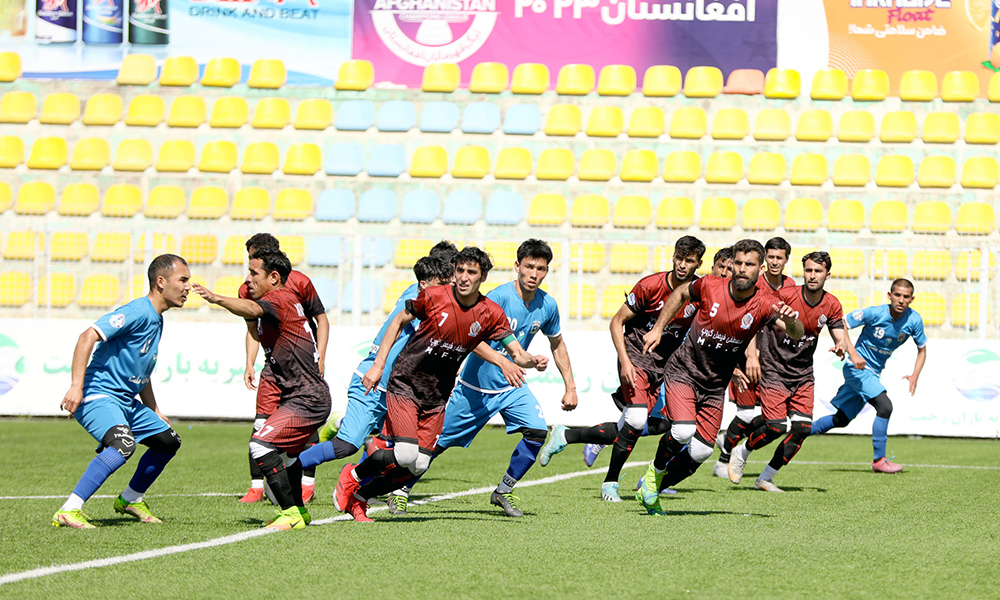
Khurasan Faryab defeated Istiqlal Kabul 1-0 in the 35th match of Afghanistan Champions League (ACL) in Kabul on Tuesday, while Sorkh Poshan Khafi thrashed Sarsabz Yashlar 4-1 in the 36th match of the tournament on the same day.
Khurasan’s only goal against Istiqlal Kabul was scored by Farid Ahmad – who was declared man of the match.
In the second match of the day, Sorkh Poshan Khafi’s four goals were scored by Habibullah Hotak and Omid Rajabi.
Khurasan’s Habibullah Hotak received the man of the match award.
Wednesday’s matches will see Abu Muslim Farah FC take on Adalat Farah FC at 1 PM, while Maiwand FC will play Jawanan Wahedi FC at 3:30 PM.
The matches are broadcast live on Ariana Television.
Latest News
Pakistan is using its territory against Afghanistan: MoD
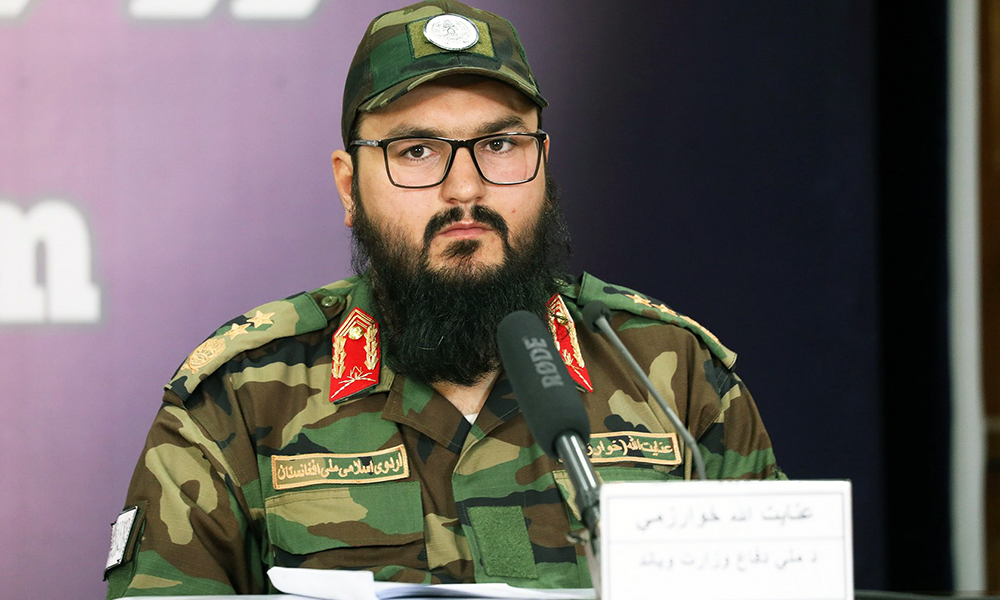
The Ministry of National Defense of Afghanistan (MoD) has strongly rejected Pakistan’s claim that the recent attack on Chinese nationals in Pakistan was planned from the territory of Afghanistan.
Late last month five Chinese nationals and one Pakistani were killed in a suicide bombing near Besham, in Pakistan’s Khyber Pakhtunkhwa.
A spokesman for the Ministry of Defense, Inayatullah Khwarazmi, said that Daesh came from Pakistan to the territory of Afghanistan and its goals were organized from there.
He said that Pakistan should respond to these actions.
Khwarazmi, said that in an area of Khyber Pakhtunkhwa, which is under the security of the Pakistan Army, the killing of Chinese nationals is either the weakness of the security institutions or their cooperation with the attackers.
Khwarazmi says that the Islamic Emirate has assured China that Afghans are not involved in such incidents.
The territorial tensions between Pakistan and Afghanistan are on the rise again. In the latest issue, Islamabad has accused Kabul of harboring terrorist networks.
Pakistan’s intelligence service has claimed that the Besham attack was planned in Afghanistan.
Latest News
Government institutions owe 1.5 billion afghanis to DABS
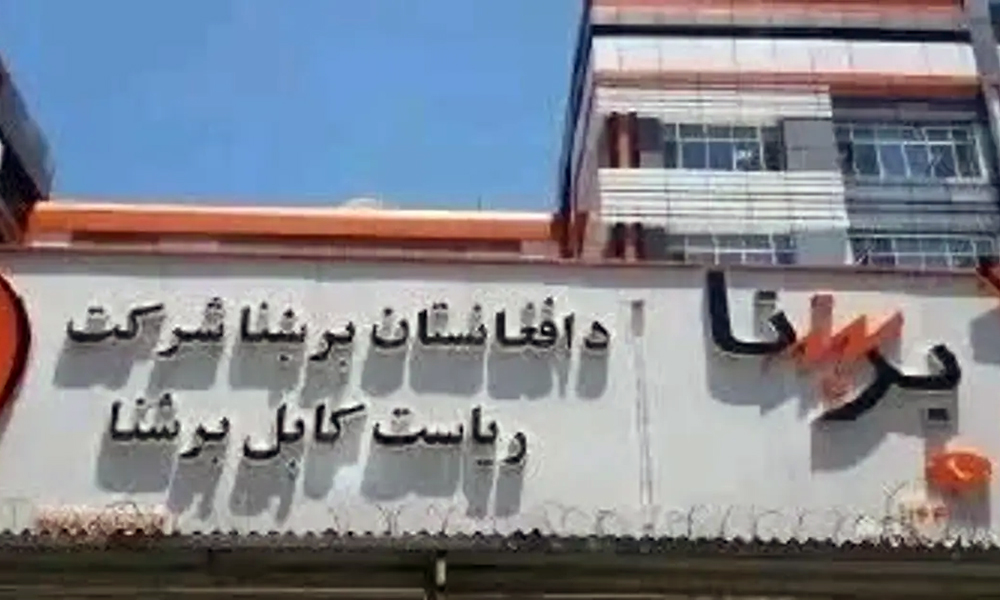
Officials from Da Afghanistan Breshna Sherkat (DABS) – Afghanistan’s power utility company said Tuesday government institutions owe them a whopping 1.5 billion afghanis.
Addressing a press conference to report on last solar year’s achievements, officials said they received over 37 billion afghanis in payments last year.
In addition, last year, DABS implemented more than 100 projects in the electricity production sector worth 3 billion afghanis.
They also said they have a five-year plan to move away from dependence on imported electricity.
DABS officials said that from the 37 billion afghanis in revenues last year, part of this was paid to neighboring countries for electricity.
These officials also said there have been improvements in the CASA- 1000 project.
The company is still trying to provide the required electricity from domestic sources, officials said.
These officials add that the work of some half-finished projects has started and the power generation capacity has also increased in the country.
The reconstruction of the substation in Chamtal district of Balkh province at a cost of 68 million afghanis, the start of the 500 KV power line from Shabarghan – Dasht Alwan, the start of the 220 KV power line from Arghandi Kabul to Ghazni and the design of Noor ul Jihad substation are some of their other achievements.
-

 Science & Technology5 days ago
Science & Technology5 days agoChina launches historic mission to retrieve samples from far side of the moon
-

 Sport5 days ago
Sport5 days agoAino Mina and Khorasan secure 2-1 wins in Friday’s ACL matches
-

 Latest News4 days ago
Latest News4 days agoTrans-Afghan railway project expected to be completed by end of 2027: Uzbek official
-
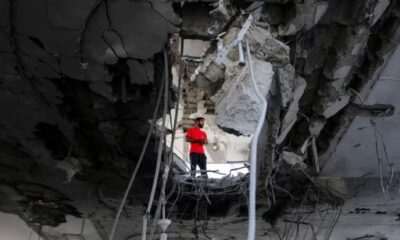
 World4 days ago
World4 days agoHamas, CIA director to hold talks in Cairo on Gaza truce
-

 Sport3 days ago
Sport3 days agoDu Plessis, Kohli help Bengaluru stay in IPL play-off race
-
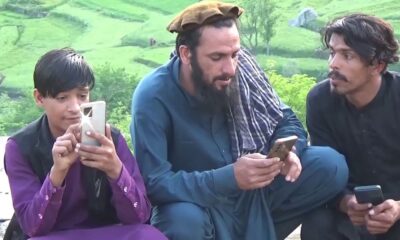
 Latest News5 days ago
Latest News5 days agoAWCC launches telecom services in Kunar’s Noor Gul district
-
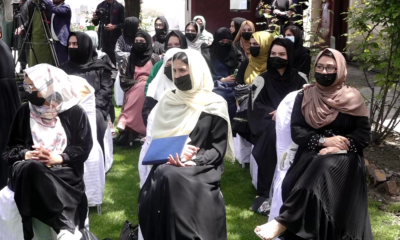
 Latest News5 days ago
Latest News5 days agoAfghan journalists ‘must be celebrated, supported and protected’: UNAMA
-
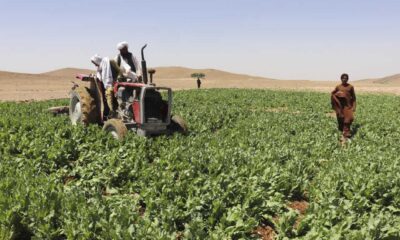
 Latest News3 days ago
Latest News3 days agoBan on opium cultivation in Afghanistan cost farmers $1.3 billion

